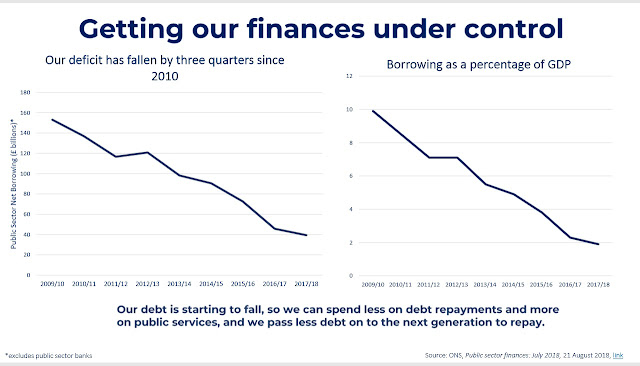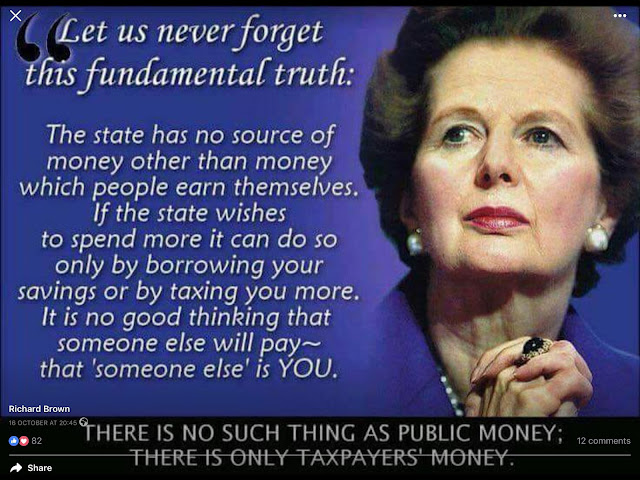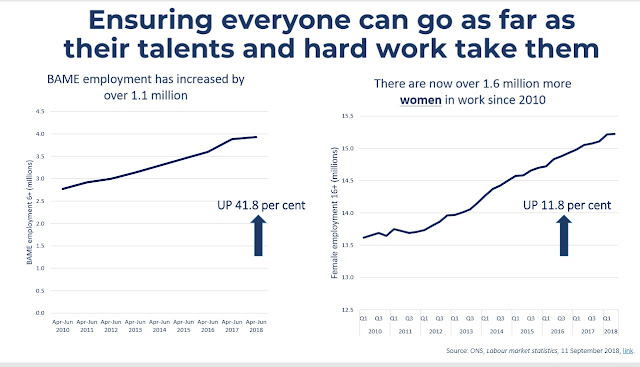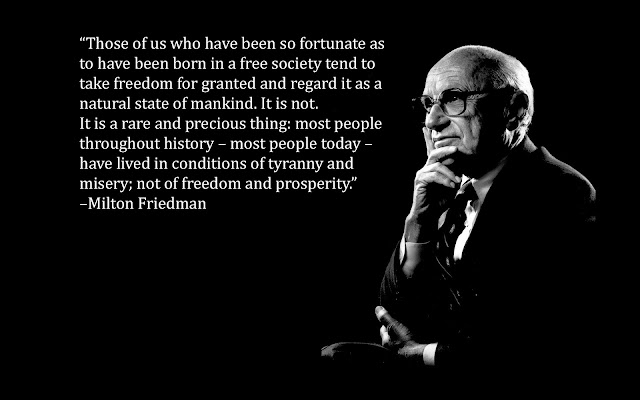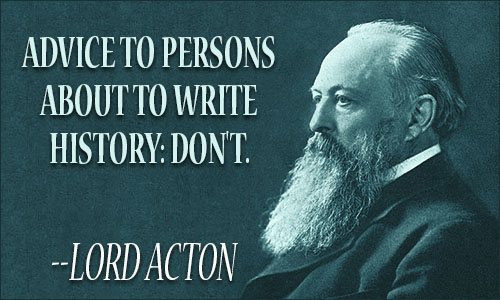Posts
Showing posts from September, 2018
Saturday music spot: Handel's "My Heart is Inditing"
- Get link
- Other Apps
Helpng people to keep more money in their pockets
- Get link
- Other Apps

Since 2010 real incomes have risen by an average of 4% after tax and allowing for inflation Incomes have risen by between at every level by between 2.5% and 5.2% in real terms. Those in the lowest income groups have seen their income rise by about 3% after allowing for inflation sine 2010 on average. The lowest percentage rise has been for the richest 10%, although their income has still risen.
More fullt-time jobs
- Get link
- Other Apps

And the new jobs are not all part-time, or on zero-hours contracts. Not that part-time-jobs don't suit some workers. Zero hours contracts give some workers as well as some employers the flexibility they need. But other people are looking for full-time work. Which is why it is great news that 79% of the new jobs created by business since 2010 are full-time
Quote of the day 28th September 2018
- Get link
- Other Apps

“I divide my officers into four classes as follows: The clever, the industrious, the lazy, and the stupid. Each officer always possesses two of these qualities. Those who are clever and industrious I appoint to the General Staff. Use can under certain circumstances be made of those who are stupid and lazy. The man who is clever and lazy qualifies for the highest leadership posts. He has the requisite nerves and the mental clarity for difficult decisions. But whoever is stupid and industrious must be got rid of, for he is too dangerous.” (German General Kurt von Hammerstein-Equord, who was chief of the German General Staff from 1930 to 1933, was apparently quoted as having said this in a Berlin newspaper in the early 1930s. Hammerstein-Equord left his post in 1933 because he was an opponent of the Nazis. There is a modern NHS version of this saying referenced here .)
Building a Stronger Economy
- Get link
- Other Apps
When the Conservatives came into government the country was borrowing over £150 billion a year and unemployment had increased by nearly half a million. Britain had suffered the deepest recession since the war and had the second biggest structural deficit of any advanced economy. But we now have a modern Industrial Strategy to create better, higher paying jobs. The economy has grown by almost 17 per cent, unemployment rate has reached its lowest level since and we are seeing debt start its first sustained fall in a generation – a turning point in our recovery from Labour’s mess. Only the Conservatives will continue to take the balanced approach our economy needs to support businesses to create better, higher paying jobs, ensuring our future security and prosperity. Since 2010, we have been building a stronger economy after Labour’s recession: The deficit has been cut by three-quarters, helping us live within our means. Over the last eight years, we’ve reduced our
General Strike call MP "got a little bit carried away"
- Get link
- Other Apps
I see that the Labour MP who called for a General Strike to bring down the government has been ever so gently disowned by her seniors. Ms Smith, the MP for Crewe and Nantwich, made her call for a strike while speaking at the Momentum-organised " The World Transformed " event in Liverpool, which runs alongside Labour's conference. Labour's deputy leader Tom Watson responded "Well, it's not particularly helpful, but she is a new MP and she was at a big fringe event - nothing to do with the party organisation - and I'm sure she got a little bit carried away." That's presumably Old-Labour speak for " do that again and it'll be the men in white coats who carry you away. "
The British General Election of 2017
- Get link
- Other Apps
Philip Cowley and Dennis Kavanagh have disclosed in their book " The British General Election of 2017 " an internal Labour email which casts rather serious doubt on the claim repeated with great regularity by Labour representatives that they had a "fully costed" manifesto at the last election. The email privately communicated to Labour's senior campaign team, quote, “ some of the problems with Labour’s cost estimates, including the lack of detail on capital spending, as well as some individual costings that were implausible or entirely absent ”. It also highlighted issues with “almost every area of the manifesto, including welfare, health, education, the economy, transport, policing and prisons." The Labour leader and Shadow Chancellor may have believed that their manifesto was fully costed but some of their close associates certainly didn't. It is suggested that as much as a trillion pounds of extra uncosted spending would have resulted f
Quote of the day 27th September 2018
- Get link
- Other Apps
" Apologies can be quite empty if they're not backed up by substance. " In almost any normal context the above quote would be a serious contender to be considered the most vapid and meaningless tautology ever uttered by a British politician. But in the actual context, that it was the reply given by Labour peer Shami Chakrabarti, when she was asked on PM why there was no apology for Anti-semitism in Jeremy Corbyn’s speech to Labour conference as leader - it spoke volumes.
PM addresses investors and United Nations in New York
- Get link
- Other Apps
Prime Minister Theresa May has addressed both the United Nations Security Council and business leaders in New York. Speaking at the Security Council meeting at the United Nations the Prime Minister raised the use of chemical weapons by the Syrian regime and Russian State, calling on states to re-join the international consensus against the use of chemical weapons. The Prime Minister has also pledged to deliver an economy that is ‘ knowledge-rich, highly innovative, highly skilled and high quality but with low tax and smart regulation ,’ and promised investors that Britain will have " the lowest rate of Corporation Tax in the G20. "
Michael Gove calls for 30% of the world's oceans to be protected
- Get link
- Other Apps
Earlier this year the government announced plans to designate 41 new marine conservation areas around Britain’s coastline that will block “harmful” activities like dredging, sea-bed trawler fishing and offshore development. A six-week consultation is planned after which the Department for Environment, Food and Rural Affairs (Defra) intends to designate some 11,000 square kilometres of coastline as newly protected – bringing the total so-called “blue belt” protected area to 220,000 square kilometres, or two-fifths of the country’s coastline. This week Environment Secretary Michael Gove has called on world leaders to treble the world's ocean protection target to ensure 30 per cent of oceans are protected by 2030. Speaking yesterday as world leaders gathered in New York for the UN General Assembly, he backed plans to see almost a third of oceans designated as Marine Protected Areas (MPAs) by 2030 . Currently global targets brokered by the UN will see just 10 per cent of coasta
Shadow Foreign Secretary admits Labour didn't deal well with Anti-Semitism row
- Get link
- Other Apps
One of the Labour leader's closest allies, Shadow Foreign Secretary Emily Thornberry, has admitted that the Labour party contains "sickening individuals" who are Anti-Semitic and that when a “very unfortunate” row about how to deal with this broke out, “We didn’t deal with it well.”. She told the Labour conference that "If we want to root out fascism and racism and hatred from our world, and from our country, then we must start, we must start, with rooting it out of our own party,” She added that "We must all acknowledge that there are sickening individuals on the fringes of our movement, who use our legitimate support for Palestine as a cloak and a cover for their despicable hatred of Jewish people, and their desire to see Israel destroyed. “Those people stand for everything that we have always stood against and they must be kicked out of our party the same way Oswald Mosley was kicked out of Liverpool.”
If you have to say your position is clear ...
- Get link
- Other Apps
The BBC website this evening is quoting Labour's Brexit spokesman Sir Keir Starmer as saying that Labour's position is "clear" about Brexit. They also quote him as saying that the party was "certainly not ruling out" the possibility of a new referendum and that "all options" are on the table." Hmmm. The terms on which Britain should leave the EU represent a fantastically complex issue and I'm not sure any party can claim to be completely clear about their position. But there are some expressions in life which would never need to be used if they are true, and therefore whenever you hear one of those expressions you can be confident that the person using them is not being entirely truthful. For example, the only circumstances in which the someone in the retail industry will use the expression "there's no demand for it" to a customer is when that very customer is asking for the product concerned and thereby proving tha
How to squeeze the rich
- Get link
- Other Apps
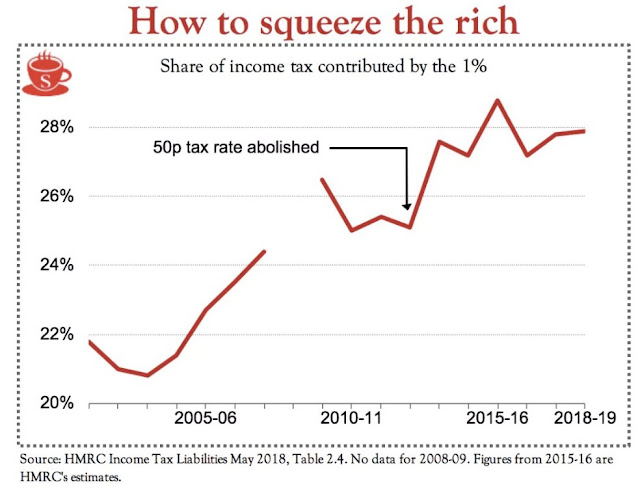
Jeremy Corbyn wants the rich to pay more tax? His policy of punitive taxation will have exactly the opposite effect. But actually there is an intelligent way for a government which understands incentives to get more tax from the richest people. But you don't do it by confiscatory high tax rates - quite the opposite. Grateful to Fraser Nelson of the Speccie for sharing this chart which shows how the share of income tax paid by the richest 1% in Britain has been trending up - and jumped up after the top rate was cut from 50%. The left hand part of the line is under the last Labour government, the right hand part is under the Coalition and then the Conservatives. And the truth, contrary to just about everything said on the subject these days by even "moderate" Labour politicians, is that the rich have been paying more income tax, and a higher share of income tax under both David Cameron and Theresa May than they ever did under Blair and Brown. So this is how an in
Sea Mill Lane in St Bees closed tomorrow for two days for repairs
- Get link
- Other Apps
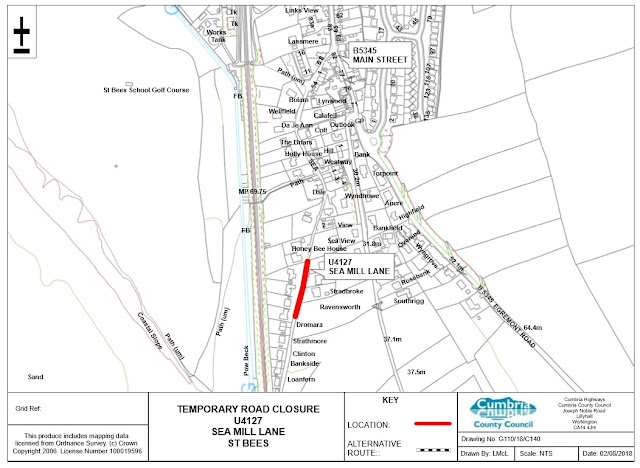
Sunday music spot: Pachelbel's Canon In D Major
- Get link
- Other Apps
Tackling "County Lines" drug gangs
- Get link
- Other Apps
For anyone reading this who is not familiar with the expression "County Lines" it refers to gangs from large urban areas who supply drugs to suburban and rural locations; using vulnerable children and young people to courier drugs and money. "County lines" was first identified as a growing threat in 2014, and a National Crime Agency report the following year with the NCA report published the following year and updated in 2016 highlighted how county lines exploitation is a widespread and serious problem, with the gangs involved exploiting ever-younger victims, and it is a key driver of criminality and violence . Typically, gangs use mobile phone lines to facilitate drug orders and supply to users. They also use local property as a base; these often belong to a vulnerable adult and are obtained through force or coercion (known as ‘cuckooing’). Children as young as 12 are being targeted. Gangs ‘recruit’ through deception, intimidation, violence, debt bondage and/
Saturday music spot: "The Sound of Silence" (Original SImon & Garfunkel)
- Get link
- Other Apps
The Prime Minister's statement on the Brexit negotiations in full
- Get link
- Other Apps
“Yesterday, I was in Salzburg for talks with European leaders. I have always said that these negotiations would be tough - and they were always bound to be toughest in the final straight. While both sides want a deal, we have to face up to the fact that - despite the progress we have made - there are two big issues where we remain a long way apart. The first is our economic relationship after we have left. Here, the EU is still only offering us two options. The first option would involve the UK staying in the European Economic Area and a customs union with the EU. In plain English, this would mean we’d still have to abide by all the EU rules, uncontrolled immigration from the EU would continue and we couldn’t do the trade deals we want with other countries. That would make a mockery of the referendum we had two years ago. The second option would be a basic free trade agreement for Great Britain that would introduce checks at the Great Britain/EU border. But even wors
Student mental health
- Get link
- Other Apps
The Universities Minister has written to all Vice Chancellors in England calling on them to make student mental health a priority. · Over the summer the government announced a new award for universities who meet new mental health standards and this week, at the start of the new academic year, have asked universities to lead by example and demonstrate their commitment to improving mental health services. · For the sake of today’s and tomorrow’s students, we must work together to improve student mental health and well-being to ensure that university is a positive experience for everyone.
Making the railways work for passengers
- Get link
- Other Apps
The government has announced a sweeping independent review of Britain’s railways, to ensure our railways work for passengers. Key facts : This is the most significant review since privatisation, and will build on our franchising strategy – bringing track and train closer together to reduce disruption and improve accountability. The review will look at the structure of the whole rail industry, including improving value for money for passengers and taxpayers. The independent review will report next year, after which the government will publish a white paper on the review’s recommendations, with any reforms planned to start from 2020. Why this matters : The railway structure we inherited is no longer fit to meet today’s challenges and cope with increasing demand. This review will ensure we get the best from the public and private sectors and deliver the railway Britain needs for the 21st century.
Midweek music spot: Prelude to Charpentier's: "Te Deum"
- Get link
- Other Apps
Storm Ali hits Cumbria
- Get link
- Other Apps
Storm Ali has hit Cumbria and, as the weather forecasters predicted, it is extremely windy today in parts of the county. We were warned there might b3 65mph to 75mph gusts and I'd say that's happening. Do take care if you have to travel today and make sure there is nothing loose in your garden which might blow away or be damaged by the wind.
Further action to build the homes we need
- Get link
- Other Apps
Earlier this week the government announced two funds to prepare land for development and ensure schemes come forward with all the infrastructure in place. Today further measures are being brought forward: the Prime Minister will announce a £2 billion long-term funding initiative – in partnership with housing associations – to help build the homes this country needs and to deliver social housing that people are proud to call their home. Key facts : Housing associations have a central role to play in building the homes we need and challenging the attitudes that hold us back. We are therefore opening up new longer-term partnerships to the most ambitious housing associations through a ground-breaking £2 billion initiative. Under the scheme, associations will be able to apply for funding stretching as far ahead as 2028-29 – the first time any government has offered housing associations such long-term certainty. Why this matters : Housing associations can achieve things nei
If you wanted any proof we are living in a post-satire era
- Get link
- Other Apps
I've noticed a few times this year pieces in websites specialising in satirical, parody and "spoof" news articles, like News Thump and the Daily Mash, in which the author was attempting to write a parody of real events but ended up simply describing them. A good example is the recent piece in News Thump which argued that " The nation is finally united behind the common belief that the sort of person who shouts at the children of an MP, regardless of that MP’s political beliefs, is clearly a massive bellend ." The thing is, like most of the rest of the article, that isn't a parody - it's what almost everyone I know actually does think. Life in general, and political life in particular, is becoming so absurd that it's quite difficult to tell where reality ends and parody begins. For similar reasons I am finding it increasingly challenging to tell the difference between some "parody accounts" on social media and the "real"
Jeremy Wright, Secretary of state for DCMS, on our vision for Broadcasting
- Get link
- Other Apps
Jeremy Wright, the Secretary of State for Digital, Culture Media and Sport sets out the government's vision for broadcasting in a speech today to the Conference of the Royal Television Society. The speech includes how broadcasters can help tackle disinformation and fake news. Key facts : The Secretary of State will give a speech in which he will voice support for Public Service Broadcasters and high quality journalism from established news sources in the face of the growing threat of fake news. High quality journalism is the best possible weapon in our battle against disinformation, so the sustainability of our media is something that should concern us all. The government is asking our Public Service Broadcasters (PSBs) to go further by doing more to build trust in the accuracy of news through high quality journalism and reporting. They should be doing more to reach a diverse and younger audience as well as exploring innovative ways to reach the public. In exchange, th
Supporting Britain's Jewish communities
- Get link
- Other Apps
Yesterday, the Prime Minister gave a speech at the United Jewish Israel Appeal dinner highlighting the support of the British government for the Jewish community against Anti-Semitism. Key facts : Some in the Jewish community say they are fearful of the future and it is sickening that anyone should feel like that in our country. We do not underestimate the threat posed by those who promote anti-Semitism. Those voices do not speak for the overwhelming majority of people in our country and we are determined defeat the scourge of antisemitism and hatred in all its forms. Along with this, we support the right of Israel to exist. We want to build the strongest and deepest possible relationship between our two countries. Why this matters : Anti-Semitism is completely unacceptable in a civilized society, which is why we’re taking a strong lead in tackling it in all its forms and support the Jewish community in this country.
Building the homes that people need
- Get link
- Other Apps
Today the government is opening two funds to overcome barriers to housebuilding, helping developers to build the homes that people need and get more people on the housing ladder. Key facts : Issues like land contamination, infrastructure requirements, and complex land ownership can present real barriers to building homes where they are needed most. These two funds, the Land Assembly Fund and the Small Sites Fund, will help release land to deliver 300,000 new homes a year by the mid-2020s. The £1.3 billion Land Assembly Fund, will be used to acquire land needing work and get it ready for development, making it less risky for developers to invest in and start building. The £630 million Small Sites Fund will be available to public land owners or local authorities that are struggling to start building on land in their area, to speed up getting the right infrastructure in place to support home building on stalled small sites, providing the homes their communities need. Why this
Dan Hannan reminds us what was said about a second referendum before the first one.
- Get link
- Other Apps
Sunday music spot: 633 Squadron (Ron Goodwin & His Orchestra)
- Get link
- Other Apps
Quote of the day for Battle Of Britain Sunday (16th September 2018)
- Get link
- Other Apps
The Electoral Commission has done the impossible
- Get link
- Other Apps
To judge from this week's High Court ruling, Britain's electoral commission appears to have managed something which I would have thought impossible. The Electoral Commission seem to have provided both the Leave and Remain campaigns with valid reasons to be furious with them. The High Court judgement, while not entirely absolving the Leave campaign of having acted incorrectly, strongly criticised the advice given by the Electoral Commission who they accused of having misunderstood the law. Campaigners from the Good Law Project (GLP) won a legal challenge against the Electoral Commission over election spending by Vote Leave, arguing that the watchdog failed in its duty to regulate the referendum process. The High Court agreed with the Good Law project and the Electoral Commission that Vote Leave had broken the rules, but also found that the Electoral Commission had misinterpreted the rules in the advice it gave to the campaign. Jolyon Maugham, director of the Good Law P
Saturday music spot: Bach's Harpsichord Concerto in D Minor
- Get link
- Other Apps
Whitehaven Parkrun
- Get link
- Other Apps
I took part in the Whitehaven Parkrun for the first time this morning. They had just over 100 participants today, beating the previous record of 98. I'd like to thank all the organisers and volunteers who helped for making this a friendly and if you'll excuse the pun, a smooth-running event. For those who may not be aware, the Whitehaven parkrun is now held on most Saturday mornings, with participants assembling at about 8.45am on the cycleway behind St Benedict's church in Mirehouse. The course follows the cycle path from Mirehouse to Moor Row and back. Parkruns are being set around Britain and in other countries and are proving immensely popular as a way for people to get more exercise in a safe and healthy environment. You don't have to be superlatively fit and it is perfectly acceptable to do the course at a walk rather than running or jogging. It's for all ages - there were people in their first decade of life and their ninth taking part this morning.
Government to open consultation on calorie labels in food outlets
- Get link
- Other Apps
The government is to hold a public consultation on introducing calorie labels for restaurants, cafes and takeaways, as part of a mission to help people take control of their own health and live longer, healthier, happier lives. Key facts : A public consultation will now open, seeking views on how best to introduce the plans, including any additional considerations that should be taken into account for small businesses, street vendors and restaurants with fast changing menus. Calorie information is already widely available in supermarkets and voluntarily available from some restaurants. These plans will level the playing field and ensure the same information is available everywhere. Obesity significantly increases the risk of heart attacks, strokes, cancer, type II diabetes, dementia and mental health problems, particularly depression Consequently, obesity reduces life expectancy by an average of three years Severe obesity reduces life expectancy by eight to ten years This is
Russia, Syria, and the Labour front bench
- Get link
- Other Apps
It is a healthy thing for people involved in politics to read, at least occasionally, publications which generally take a different point of view from their own. If it does nothing else, it gives then a better understanding of different perspectives and makes them less likely to act like the characters in Tracy Ullman's " Alternative Opinions Support Group " sketch. Another reason for this is that when a political party really makes a mess of something, harsh criticism on whatever they have got badly wrong from a paper or magazine which is generally on the same side are usually far more damning than attacks from those who always attack them anyway. Hence it is a good idea for Labour politicians to read The Telegraph or The Spectator from time to time or for Tories to read the Guardian, Prospect or The New Statesman. Of the left of centre publications in the UK, the one I have most respect for is The New Statesman because it generally publishes the broadest range of
Quote of the day 14th September 2018
- Get link
- Other Apps

Lord Acton was writing about the French revolution when he wrote the words below. The rallying cry of the revolution had originally been " Liberté , égalité , fraternité" (e.g. Freedom, Equality, Brotherhood) but Lord Acton's view was that it descended into a chaotic bloodbath because the second overwhelmed the first two. You can read the quote in context in Acton's book "The History of Freedom" (page 57)
Supporting bereaved parents
- Get link
- Other Apps
One of the most shattering thing which can happen to anyone is the death of one of their children. I have no idea how dreadful this experience is and hope I never find out, but I do know how awful it is to lose a parent and losing a child must be even worse. The government is taking action to provide a new workplace right for bereaved parents who have lost a child two have two weeks’ leave from work, giving them more time to recover from their loss. This new law, delivering on a manifesto commitment, will : · Support those affected by the tragedy of childhood mortality, and is expected to come into force in 2020. · Give all employed parents a day-one right to two weeks’ leave if they lose a child under the age of 18, or suffer a stillbirth from 24 weeks of pregnancy. · Ensure that employed parents who meet the criteria are able to claim for this period. Why this matters : This law makes Parental Bereavement Leave a legal right for the first time i
How not to win friends and influence people
- Get link
- Other Apps
Two of the things which the British most pride ourselves on are a sense of fair play and on caring about children. On both those grounds, taking out on children that you don't like the a decision or policy position that their mother or father supports is a pretty sick thing to do and not one which is likely to endear you to most British voters. I was disappointed to learn that a left wing protest group staged a demonstration yesterday outside the home of Jacob Rees-Mogg MP and shouted not just at him but also his small children and their nanny . I wouldn't dream of shouting " Your daddy is a totally horrible person " at a child even if the father concerned was someone I detest. Nor, I think, would most people. But some people have convinced themselves that the fact that they disagree with someone's politics makes not just them but their families legitimate targets for abuse. Many MPs and commentators of all parties have rightly condemned this demonstration
